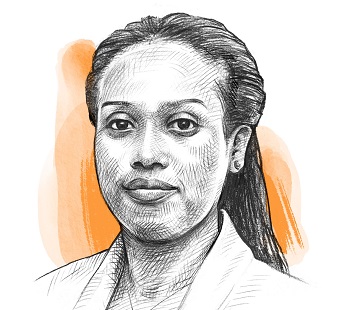Project to Support Sexual and Reproductive Health and Rights for Adolescents and Young People in Guinea
Objective
-
€10mBUDGET
-
17/02/2023PROJECT START
-
48 monthsDURATION
Guinean health system lacks resources and needs to address gender issues
Guinea’s health system is still one of the weakest in the world. It is characterised by insufficient health coverage, due to the lack of qualified staff and the insufficient budget allocation for health by the State (5%, well below the commitment of 15% of the Abuja Treaty). This insufficient budget, combined with inefficient allocations, is detrimental to health facilities and the quality of healthcare.
Guinea is also faced with gender equality issues, with a “very high” level of disparities according to the Social Institutional and Gender Index (SIGI) of the Organisation for Economic Co-operation and Development (OECD). In addition, the country has an extremely high level of prevalence of female genital mutilation: 95% of women between the ages of 15 and 49 have been excised, as well as 39% of girls under the age of 14. It is the highest rate in West Africa according to UNICEF.
Slow progress in the sexual and reproductive health and gender situation
In Guinea, progress in the field of health, in particular sexual and reproductive health, is slow. The Budgeted National Action Plan for Family Planning (PANBPF) for 2019-2023 indicates that in 2017, more than half of the healthcare facilities in Guinea did not offer family planning services. At national level, 22% of contraceptive requirements are still not met. Deliveries in healthcare facilities increased from 43% to 50% between 2012 and 2018, but regional disparities persist, with only 20% of institutional births in Boké, against 90% in Conakry. At national level, only 55% of births were assisted by trained personnel in 2018.
In addition, the rate of women without education (69%) is particularly high, which limits their ability to access and understand information about their health and their sexual and reproductive rights, thereby preventing them from making their own health choices.
The study conducted by the Centre for Research in Reproductive Health in Guinea (CERREGUI) on violence in medical settings also documents the high prevalence of ill-treatment by medical staff in the management of delivery care. This ill-treatment compromises the quality of health services and permanently affects the physical and psychological health of patients, as well as their ability to return to counselling and care facilities.
A project to increase access to sexual and reproductive health services
In this context, Expertise France has developed a programme complementary to the dynamics generated by Guinea at the institutional level. It aims to contribute to women’s and girls’ empowerment by making a lasting improvement in their knowledge about their rights and their access to sexual and reproductive health services in the Boké region in Guinea. More specifically, the activities implemented by the project will:
• Promote demand and improve knowledge about sexual and reproductive health and rights and family planning (SRHR/FP), especially among girls and young women, by mobilising and informing communities through a gender-sensitive approach
• Strengthen the provision of SRH/FP services, including the management of gender-based violence, by addressing the specific needs of young people and adolescents, especially girls and young women, and thereby contribute to reducing gender inequalities
• Improve the governance and institutional framework for SRHR, by helping to mainstream gender issues into public health policies


